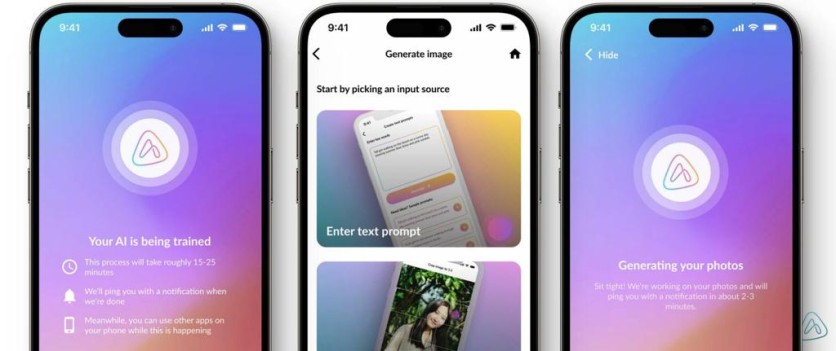
Imagine sipping coffee while your bank balance ticks up, and you haven't even lifted a finger. It's not magic, it's the future of Intellectual Property (IP) rights for images.
It's no longer science fiction (like the new Black Mirror episode).
Technological advancements have made it possible for individuals to sign away their IP rights to images, allowing artificial intelligence to step in and make what feels like magic happen. And if you want to make money, it could mean signing away your entire body, face, and voice.
Let's explore what this means for the future of IP rights and some of the pivotal ethical considerations.
How IP rights work
IP rights essentially mean that you hold ownership and control over how the images are used and distributed. Whether it's a photograph you've taken or an image of yourself, IP rights protect your interests.
Now, when you sign away these rights, you're essentially giving permission for someone else - or in this new era, something else - to use your images.
AI technologies can now use these images to create content, advertisements, or even digital models, similar to what Disney did with Luke Skywalker in The Mandalorian.
This essentially means that an AI could take a picture of you and use it in various contexts, generating revenue each time your image is used. The beauty here is that once you've signed away the rights, the AI handles all the heavy lifting.
Your image could be used in ad campaigns, billboards, or even as stock photos - all without you having to do anything besides initially signing away the rights.
The first step with generative AI
While fully-generated AI movies aren't here quite yet, there are a few image-based generative AI companies that have made significant progress. One is Artisse, where you can upload 10-15 photos and train an AI model to generate photorealistic outputs with endless variations - through text or visual prompts.
This breakthrough technology democratizes the world of photography and is particularly appealing to young individuals and social media enthusiasts who thrive on creating captivating content.
For instance, with Artisse, you could have AI-generated photos of yourself atop Mount Everest, at a posh cafe in Paris, or even as a character in a sci-fi universe. All without ever leaving your home.
And if you want to sign your IP rights away to make money, you could offer your "model" up for advertising campaigns, stock photos, or potentially movies.
However, what if you don't like the way your "model" is portrayed? Are there ethical violations that once crossed, give you your IP rights back?
Ethical considerations of IP rights
Black Mirror: Joan Is Awful turns the idea of IP rights on its head by introducing a Netflix-like streaming service buying the IP rights of famous actors. Then, they use generative AI to create movies about the lives of random people...
One concern is the loss of control over your personal image. Once you've signed away your IP rights, the AI could potentially use your image in ways you may not necessarily endorse or agree with. Are you comfortable with the idea of your likeness being used in a variety of contexts without your direct input?
Moreover, the authenticity of content comes into question. When AI generates content, it's based on data and algorithms, which can lack the emotional depth and human connection that traditional content might offer. This can have implications on the quality and substance of the content being produced.
It's also worth considering how this affects public perception and societal values. By allowing AI to create content with human images, are we moving towards a culture where authenticity is compromised for efficiency and profit?
Final thoughts
As AI platforms like Artisse redefine how we think about IP rights, we must balance innovation with ethics. That means it's essential to stay informed about the terms of signing away your IP rights and consider the implications for personal image control and content authenticity.
Companies, AI developers, and regulatory bodies should collaboratively establish transparent, ethical guidelines. The potential for creativity and passive income is boundless, but it must be coupled with a commitment to preserving individual rights and societal values. Embrace the future, but tread thoughtfully.
ⓒ 2026 TECHTIMES.com All rights reserved. Do not reproduce without permission.




